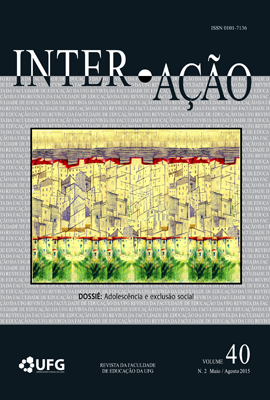FUNK: ENGAJAMENTO JUVENIL OU OBJETIVAÇÃO FEMININA?
DOI:
https://doi.org/10.5216/ia.v40i2.32808Keywords:
Funk, Dança, Gênero, JuventudeAbstract
O artigo tem como objetivo analisar os sentidos atribuídos ao gênero no funk (dança) que permeiam as aulas e apresentações dessa dança em uma comunidade de periferia em Canoas, RS. Para isso foi realizada uma pesquisa qualitativa de cunho exploratório. Realizamos oito horas de observação de uma prática (aulas e apresentações) de Funk. Os resultados mostram que, por um lado, o ensino da dança pode se configurar como um importante instrumento de transformação dos jovens, visto que há grande satisfação por parte deles em participar das oficinas de funk, mas, por outro, pode representar mais um espaço de dominação e naturalização de lugares sociais que reforçam as diferenças de gênero.
Downloads
Downloads
Published
How to Cite
Issue
Section
License
Inter-Ação uses the Creative Commons Attribution 4.0 License for Open Access Journals (Open Archives Initiative - OAI) as the basis for the transfer of rights. Open access means making documents available on the Internet free of charge, so that users can read, download, copy, distribute, print, search, or link to the full text of documents, process them for indexing, use them as input data for software programs, or use them for any other lawful purpose, without financial, legal, or technical barriers.
Authors publishing in this journal agree to the following conditions:
1) Authors retain copyright and grant the journal the right of first publication, with the work simultaneously licensed under the Creative Commons Attribution License, which permits redistribution of the work with attribution and first publication in this journal.
2) Authors are permitted to enter into additional, separate agreements for non-exclusive distribution of the version of the work published in this journal (e.g., for publication in an institutional repository or as a book chapter), with attribution and first publication in this journal.
3) Authors are permitted and encouraged to publish and distribute their work online (e.g. in institutional repositories or on their home page) at any time before or during the editorial process, as this may generate productive changes as well as increase the impact and citation of the published work.















